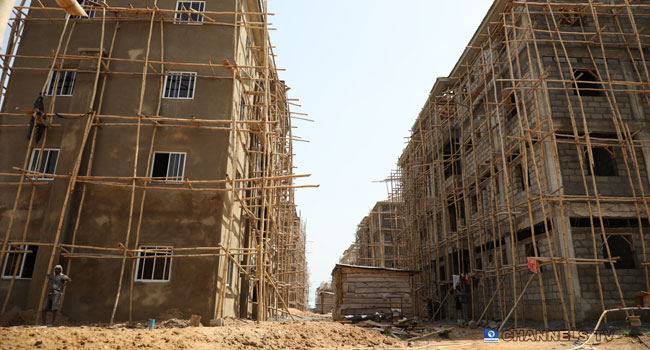Despite being one of Nigeria’s choicest cities, Abuja is dotted with half-finished estates. It isn’t uncommon to find rows of incomplete structures overgrown with weeds, occasionally inhabited by livestock.
As the city’s population climbs amidst a deepening housing deficit, these abandoned projects have begun to draw the attention of real-estate developers.
“When I first walked in here two years ago,” recalls Chike Onoh, a project engineer describing one such estate in a neighbourhood called Karmo. “honestly, it felt like entering an abandoned dream.” An awful din emerged from the housetop as carpenters installed new roofing sheets.
Statistics show that only about 34% of privately initiated housing projects in the last 12 years reached full completion on time. Factors such as inflation, delayed approvals and legal disputes between landowners and developers are often to blame. Yet many developers argue that leaving these estates halfbuilt in today’s Nigeria is bad economics.
“It costs more to start afresh elsewhere than to salvage what already exists,” says Onoh.
While rehabilitating these structures can be cheaper than building from scratch, it still requires heavy funding and work depending on the state of deterioration.
Typically, decisions on these initiatives are made collaboratively between financing firms, reconstruction specialists and developers, in what is known as cooperative-based financing. In one such refurbished estate, the developers secured the land title, renegotiated old debts and introduced phased construction.
“Nobody wants to pour money into an endless pit,” adds Onoh. To offset some of the costs, several private developers have begun partnering with housing cooperatives, diaspora groups and pension-backed mortgage systems.
Another concern is structural assessments. But as Ibrahim Abubakar, an Abuja-based engineer who’s worked on several revival projects, notes, the pride is in the completed project. “I always feel like I helped correct something, like I fixed a wrong,” he says.
Interestingly, these rehabilitations are beginning to draw government attention. Though not completely implemented, the FCTA has hinted at incentivising developers who take over abandoned estates, especially those with substantial initial work already done.
Such resurrected projects offer economic benefits. They restore investor confidence in a sector long criticised for inconsistencies and abandoned ambitions.
Asked whether reviving ghost estates is sustainable in the long run, one developer answers, “Absolutely. Abuja has too many unfinished dreams.”
This optimism mirrors the budding trend among Abuja’s developers towards breathing new life into old projects.
Summary not available at this time.






